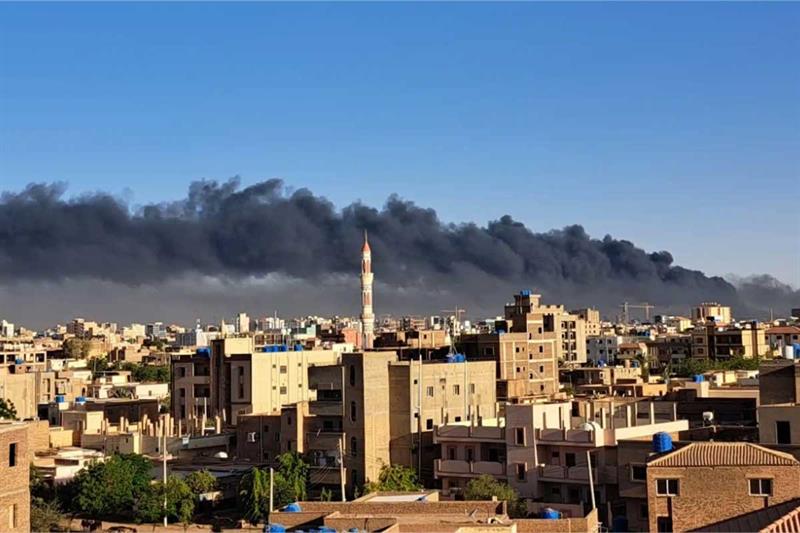
Residents of Sudan’s war-torn capital reported a major communication blackout lasting several hours on Friday as the intense clashes between the army and the RSF continued, spreading across various areas of Khartoum.
Witnesses speaking via phone to media reported that crucial internet and mobile phone connections, which have played a vital role in accessing information and essential supplies throughout the nearly three-month-long war, were rendered inoperative. These disruptions occurred as “violent clashes” unfolded in multiple areas of the city.
The cause of the malfunction was not immediately evident, but according to residents, certain mobile networks were restored by 11:00 am (0900 GMT).
During the morning, plumes of dark smoke were observed emerging from both the vicinity of the Sudan Army headquarters situated in the center of Khartoum and the southern parts of the city.
Witnesses in Khartoum North recounted the presence of “clashes involving various types of weaponry.” Meanwhile, across the Nile river in Omdurman, witnesses reported sightings of fighter jets and drones soaring above the area.
The conflict has been ongoing between army chief Abdel Fattah al-Burhan and his former deputy, Mohamed Hamdan Dagalo, who leads the Rapid Support Forces, since April 15.
As per the United Nations, over 1.5 million residents of Khartoum have been forced to flee due to airstrikes from above, the presence of tanks and armed fighters on the streets, as well as widespread instances of looting.
Amidst the brutal urban warfare taking place in Khartoum’s densely populated neighborhoods, millions of individuals have found themselves trapped within their homes, fearing both the dangers of getting caught in the crossfire and potential attacks while going out onto the streets.
According to the Armed Conflict Location and Event Data Project, the ongoing fighting has resulted in the deaths of at least 3,000 individuals throughout Sudan.
The most intense clashes have been concentrated in Khartoum, along with the western region of Darfur.
